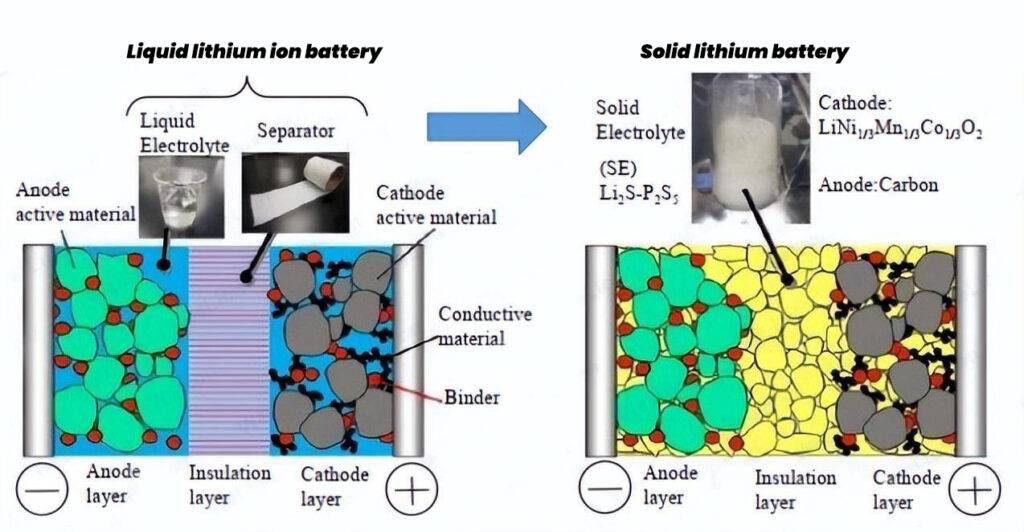The burgeoning electric vehicle (EV) industry is witnessing a pivotal shift, with solid-state batteries and advanced software emerging as crucial components. This transformation is prompted by the shortcomings of existing lithium-ion batteries, including the risk of thermal runaway and limited energy storage capacity.

Addressing Safety Concerns
Thermal runaway, a concerning occurrence where lithium-ion batteries can undergo uncontrolled self-heating leading to fires, poses a significant hazard. Solid-state batteries present a solution to this issue by employing a stable solid electrolyte, substantially reducing the risk of thermal runaway. This advancement notably enhances the safety profile of electric vehicles.
Elevating Energy Storage Capacity
Beyond safety considerations, solid-state batteries offer advantages in terms of energy storage capacity. They hold the potential to store more energy compared to traditional lithium-ion batteries, resulting in increased energy density. This improved capacity translates to longer driving ranges and faster charging times, a critical factor for the widespread acceptance of electric vehicles in an era of increasing popularity.
Synergy with Software Optimization
However, the progress in solid-state battery technology alone is insufficient for propelling the EV industry forward. Software plays an equally crucial role in maximizing the efficiency and performance of electric vehicles. Battery Management Systems (BMS), a software-driven control system, oversees various aspects of battery packs, such as charging, discharging, and temperature regulation. It ensures optimal battery operation, mitigating issues like overcharging or over-discharging that could compromise battery health.
User Experience Enhancement
Software applications extend beyond BMS, focusing on improving the overall user experience. Intelligent energy management systems, for instance, analyze driving patterns to optimize energy usage, enhancing both range and efficiency. These systems can incorporate external data, such as weather and traffic conditions, to further fine-tune energy consumption.
Industry Leaders’ Commitment
Major automakers like Tesla, Hyundai, Kia, and BYD are already heavily investing in solid-state batteries and software development. Recognizing the pivotal role of these technologies in shaping the future of the EV industry, these companies aim to integrate advanced software systems into their electric vehicles, enhancing performance, efficiency, and overall user satisfaction.
Concluding the Revolution
In summary, the tandem progress of solid-state batteries and software optimization is indispensable for the evolution of the electric vehicle industry. Solid-state batteries address safety concerns and boost energy storage capacity, overcoming key limitations of current lithium-ion batteries. Simultaneously, software optimization ensures peak performance, efficiency, and an enriched user experience. This combined technological prowess is poised to drive the widespread adoption of electric vehicles, revolutionizing the transportation sector.


